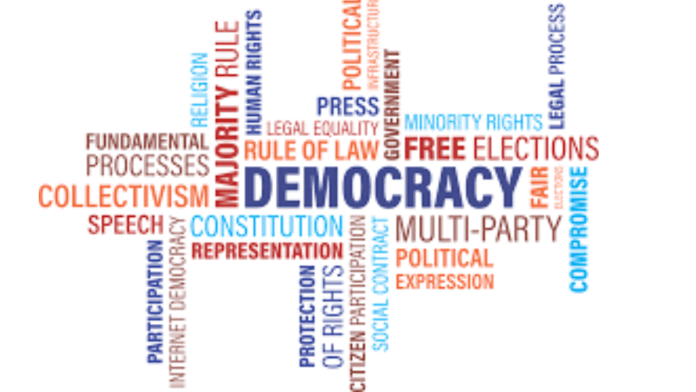Thank you dear subscribers, we are overwhelmed with your response
There is a mounting perception that democracy is in retreat all over the world – Russia, Turkey, Venezuela, Thailand, Hungary. Is the US going down this road? The US and EU are seeing their global influence erode. Many commentators on democracy believe the world has entered a period of democratic recession. Trust in the institutions of democracy, including the United Nations, its organs and specialized agencies, is also visibly declining. In the past five years, the European Union’s official research bureau found that less than 30% of Europeans had faith in their national parliaments and governments – some of the lowest figures in years, and an indication that almost three-quarters of people distrust their countries’ most important political institutions. Could America’s current “crisis” be part of a global backsliding of democracy? But as the foreign minister of India, Jaishankar says many existing democracies including India have proven remarkably robust in the face of these challenges. Yet democracy by itself is not a panacea for a nation’s progress and development.
A democratic state cannot be stable unless it is effective and legitimate, with the respect and support of its citizens. Civil society is a check, a monitor, as also a vital partner in the quest for this kind of positive relationship between the democratic state and its citizens. Civil society is the whole gamut of organized groups and institutions that are independent of the state, voluntary, and at least to some extent self-reliant. This includes non-governmental organizations, independent mass media, think tanks, universities, and social and religious groups. Civil society is usually independent of the state. While not parroting, it is not required to always criticize and oppose the state. It should make the state at all levels more accountable, responsive, inclusive, effective and more legitimate. A vigorous civil society strengthens citizens’ respect for the state and promotes their positive engagement with it.
Brief history of Civil Society in India has had a long tradition of voluntary service, rooted in the concepts of dharma (duty) and daan (giving). Voluntary contribution in the country took shape through the social and religious movements of serving others. Many organizations of the past came up for the service of the disadvantaged, such as Brahmo Samaj (1828), Theosophical Society (1879), Ramakrishna Mission (1897), and Seva Samiti (1914). However, voluntary groups in this period remained largely unorganized and often leaned more toward relief work. Civil society in India has expanded immensely, covering a wide range of work. Types of civil society organizations based on its composition. Civil society in India can be broadly categorized as NGOs and CSOs. NGOs (Non-Governmental Organizations) and CSOs (Civil Society Organizations) are both non-profit, voluntary groups that operate independently of government, focusing on addressing social issues and promoting public good, often at the local, national, or international level. They register with the government but work independently.
The most basic role of civil society is to limit and control the power of the state by finding ways to check, monitor, and restrain the power of political leaders and state officials. Public concern of abuse of power and corruption should be highlighted.
Civil society actors should watch how state officials use their powers. They should raise public concern about any abuse of power. They should lobby for access to information, including freedom of information laws, and rules and institutions to control corruption. Even where anti-corruption laws and bodies exist, they cannot function effectively without the active support and participation of civil society. An important task of civil society is to promote political participation. Civil society organizations can help to develop tolerance, moderation, compromise, and respect for opposing points of view. One can’t expect only the politicians to do this. Civil society organizations should lobby for the needs and concerns of their members, such as women, students, farmers, environmentalists, trade unionists, lawyers, doctors, and so on. It is not only the resourceful and well organized who can have their voices heard. Over time, groups that have historically been oppressed and confined to the margins of society can organize to assert their rights and defend their interests as well.
Democracy cannot be stable if people only associate with others of the same religion or identity but cut across old forms of tribal, linguistic, religious, and other identity ties’ We have seen over the years civil society provides a training ground for future political leaders. The public needs to be informed about important public issues by the f civil society. Conflict resolution can be done by civil societies. Finally civil society organizations have a vital role to play in monitoring the conduct of elections. Further, the role of the people as part of the civil society does not end with exercising the voting franchise. For a democracy to succeed the media should also take up the role of civil society and not become politicized.
The author is an Indian Army veteran and a contemporary affairs commentator. The views are personal. He can be reached at kl.viswanathan@gmail.com.This piece has not been published in any media earlier.
These pieces are being published as they have been received – they have not been edited/fact-checked by ThePrint


